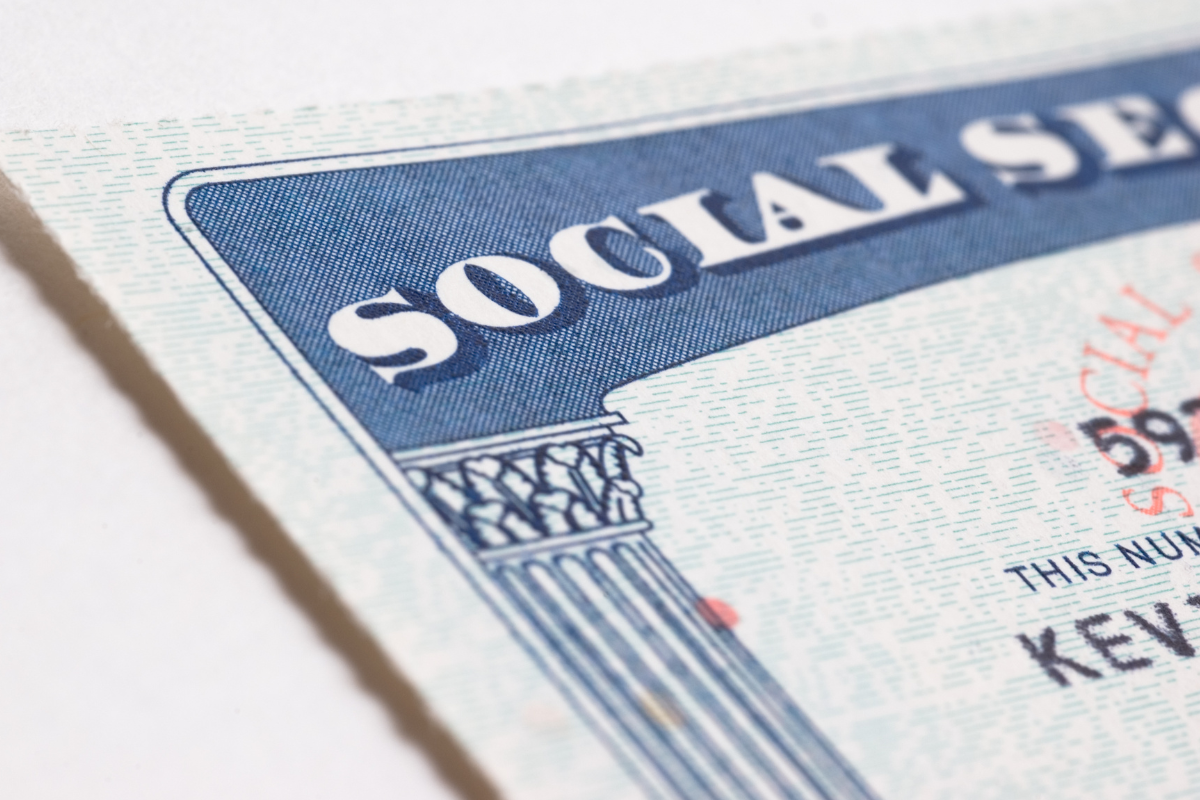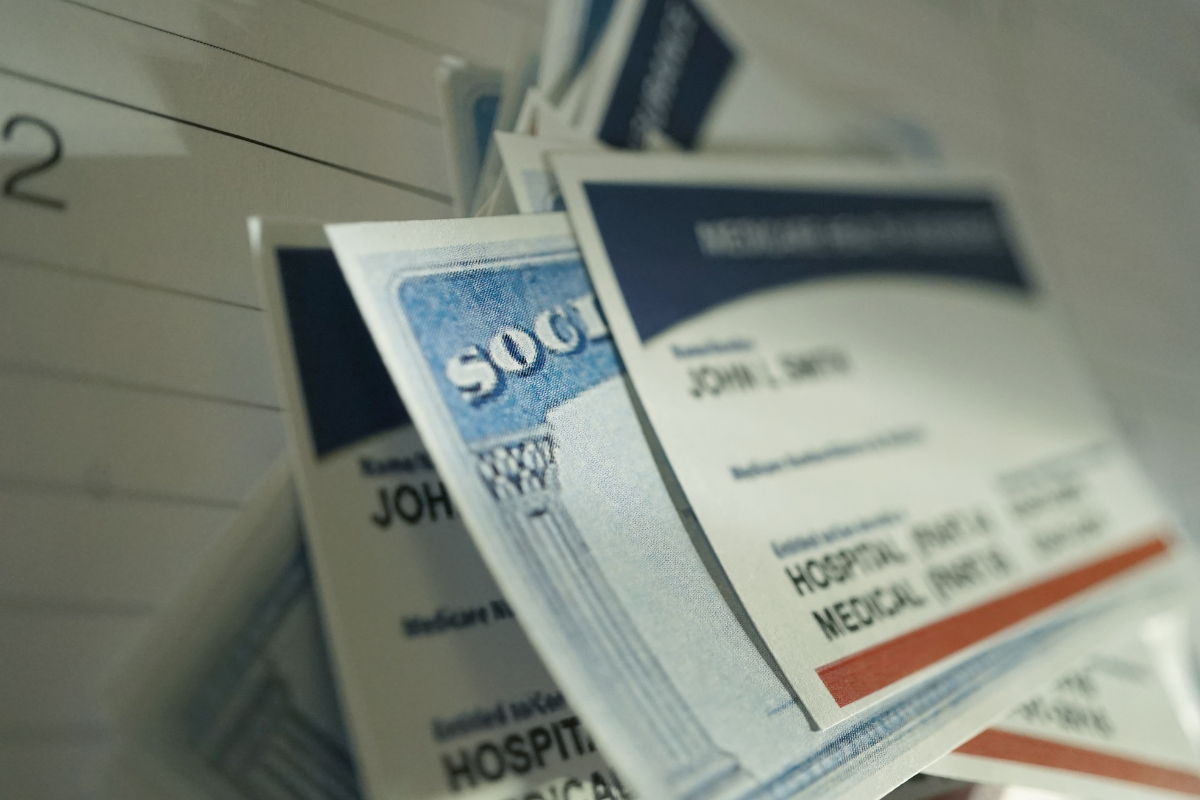Post Disclaimer: This blog reflects the author's personal experience with end-of-life matters and is provided in good faith for informational purposes only. While we aim to provide clear guidance on hard-to-find topics, this content is not legal advice and your use is at your own risk. Estate planning and end-of-life laws vary by location, so please consult your state's laws and seek guidance from a licensed attorney for your specific situation. We make no warranty about the accuracy or completeness of this information, which does not replace professional legal counsel. For more information, please see our full disclaimer.
When a loved one passes, notifying the Social Security Administration (SSA) about the death isn't just a bureaucratic chore; it's a key step in managing their affairs.
This process ensures that benefits are adjusted correctly and helps prevent identity theft.
To report a death to the Social Security Administration, the most common method is through a funeral director, who will handle the notification as part of their services. Alternatively, you can call the SSA directly at 800-772-1213 or visit a local Social Security office. Have the deceased's Social Security number and death certificate ready.
Luckily, the steps to report a death to the Social Security Administration are clear and necessary.
Most funeral directors provide this service, but if more personal involvement is needed, a quick call to the SSA at 800-772-1213 can ensure peace of mind.

Understanding the Importance of Reporting a Death
Making sure that the death of a loved one is reported to the Social Security Administration (SSA) is a crucial step during a challenging period.
This fulfills legal requirements and ensures that financial benefits and responsibilities are addressed accurately.
Legal Obligations and Responsibilities
When someone passes away, it is not just about personal loss; legal duties must be fulfilled.
Reporting a death to the SSA typically falls upon family members or the executor of the deceased's estate.
Failing to complete this duty promptly can lead to several complications.
Why is this important?
- Legal Compliance: Reporting a death is a legal obligation. According to official SSA guidelines, neglecting this responsibility can result in legal repercussions and potential fines.
- Preventing Fraud: Each year, millions of dollars are lost to fraud linked to unreported deaths. The U.S. Government Accountability Office highlights this as a serious issue, emphasizing the need for accurate reporting to curb fraudulent claims.
Understanding these obligations ensures both compliance and protection against avoidable legal challenges.
Impact on Survivor Benefits
Failure to report a death to the SSA can significantly affect survivor benefits.
Why is timely reporting critical?
- Immediate Discontinuation of Benefits: To avoid overpayment, benefits must stop immediately after death. Once notified, the SSA processes this, preventing future financial burdens on the estate.
- Access to Survivor Benefits: Survivor benefits assist eligible family members like children, spouses, and parents. Any delay in reporting can mean delays in receiving these necessary funds. The SSA's survivor benefits page details these entitlements and the importance of prompt notification.
- Avoiding Legal Complications: Continued payments may require repayment, which can be stressful and financially draining.
Ensuring that a death is reported to the Social Security Administration is not just about ticking off a checklist item; it's about safeguarding your family's financial well-being and adhering to necessary legal processes.
By understanding these key areas, you are better equipped to handle this responsibility with confidence and care.

Who Needs to Report the Death?
When a loved one passes away, numerous tasks must be handled, and one crucial step is reporting the death to the Social Security Administration (SSA).
It's important to know who is responsible for this task.
Depending on circumstances, such as agreements with the funeral director or family members' readiness to take action, this responsibility can fall on different shoulders.
Role of the Funeral Director
Often, funeral directors handle reporting a death to Social Security as part of their services.
They serve as guides in this emotional journey and invaluable allies in managing the logistics.
Funeral directors typically collect essential information from the family, including the deceased person’s Social Security number.
This way, they ensure that official notifications are timely, preventing complications with benefits and records.
The Centers for Disease Control's (CDC) Funeral Directors Handbook details funeral directors' procedures and responsibilities in these situations for a more comprehensive understanding.
They coordinate with relevant authorities to ensure all paperwork is correctly filed and submitted.
Suppose you want to learn more about their role and how they can assist in arranging affairs after death.
In that case, Memorial Planning's resource offers in-depth insights into their myriad responsibilities.
Responsible Family Members
In instances where a funeral director is not involved, family members may be responsible for reporting the death.
This role can be filled by a spouse, an adult child, or even an executor of the estate.
Whoever steps up should contact Social Security promptly to convey the necessary information.
You'll need to gather certain documents and information before contacting the SSA:
- Social Security Number of the deceased.
- Copy of the Death Certificate, which you can usually get from the funeral home or the state office.
- Beneficiary Identification if they were receiving benefits.
If you need further guidance on managing steps immediately after losing a family member, our article "Death in the Family Checklist: A 24-Hour Action Plan" offers practical advice and outlines additional actions to undertake during such critical times.
Key takeaway: Reporting a death to the Social Security Administration is essential and can be carried out by either the funeral director or a responsible family member.
Acting swiftly helps ensure that all records are updated, preventing future bureaucratic challenges.
For more details, visit the SSA website for specific instructions and support services.

How to Report a Death to the Social Security Administration
Let's explore the steps involved in reporting a death to the SSA.
Gather Necessary Information
Before reaching out to the SSA, it's essential to have all the required information at hand.
This preparation helps in making the process smoother and quicker.
Here's a checklist of what you typically need:
- Social Security Number (SSN): of the deceased. This is crucial for identifying the person's records in the SSA system.
- Death Certificate: Obtain a certified copy from the state's vital records office.
- Personal Details: Full name, date of birth, and last known address.
- Contact Information: Of surviving family members who may qualify for survivor benefits.
Ensuring you have these details readily available can significantly streamline the reporting process.
choosing the most convenient one easier
Contacting the SSA
Various methods are available to contact the SSA.
Here are your options:
- By Phone: Call the SSA directly at 1-800-772-1213. They offer a TTY service for the hearing impaired at 1-800-325-0778. This option lets you speak directly with a representative who can guide you.
- In Person: Visit your local Social Security office by checking the SSA office locater. Bring along the necessary documents for quicker service.
- Through a Funeral Director: The funeral director can often report the death on your behalf. Please provide them with the deceased's Social Security number and contractual permission. The SSA's guide on reporting deaths offers more about this.
These methods provide flexibility, allowing you to manage this task without stress.
Filling Out Required Forms
Certain forms may need to be filled out to complete the process. It's essential to know which ones could apply to your situation:
- Statement of Death by Funeral Director (Form SSA-721): Funeral directors usually complete this, but it might require your input or signature.
- Application for Survivor’s Benefits: If applicable, you must complete this to enable a smooth transition of benefits to eligible family members.
Each form has instructions that must be followed meticulously, and procrastination can lead to delays in benefits.
Reporting a death to the Social Security Administration is a crucial step that requires attention to detail and prompt action.
With this guide, you should feel more confident in navigating the process efficiently.
Following these steps ensures that all legal obligations are met, allowing you to focus on other important matters during this challenging time.
For more detailed guidance, visit the SSA's official site and ensure all necessary steps are completed.

Potential Challenges When Reporting a Death
Dealing with the aftermath of a loved one’s passing can be a complex process, especially when it comes to navigating the Social Security Administration's (SSA) procedures.
Reporting a death to the Social Security Administration isn't just about informing them of someone's passing; it involves ensuring that all ensuing paperwork and claims are handled correctly.
Understanding these challenges can make the journey a little smoother.
Delays and Miscommunications
When reporting a death to the Social Security Administration, delays and miscommunications can often arise.
Ensuring that all the information provided is accurate and submitted promptly is crucial.
But what might cause these delays?
- Incomplete Information: Always double-check that you have the deceased's full legal name, Social Security number, and date of birth. Missing or incorrect details can halt the process.
- Timing of Notification: Delays can occur if there's a lag between the actual event and when it’s reported to the SSA. Contacting a local Social Security office or the SSA’s main number as soon as possible is key.
- Relying on Third Parties: While funeral homes typically handle this task, it's wise to verify that they've made the report. If you need to report the death yourself, you can find step-by-step guidance on the SSA’s official site.
What can you do? Being organized and having all the necessary documents can minimize these challenges.
Additionally, direct communication with the SSA reduces the chance of errors.
Handling Disputes Over Benefits
Disputes over survivor benefits or entitlements are another hurdle that might surface.
These can involve disagreements over the amount or eligibility; each situation may require unique handling.
- Documentation Gather: Compile all essential documents, such as birth and marriage certificates, to ascertain eligibility. This can speed up the resolution process.
- Legal Assistance: In complex cases, seeking legal advice from a probate attorney might be beneficial, as they can guide you through any arising disputes (Keystone Law Group).
- SSA Appeals: If you believe the SSA's decision was incorrect, you have the right to appeal (SSA's Right to Appeal).
How should you approach disputes? Engage with the SSA actively and maintain open lines of communication.
An organized approach to handling disputes ensures that your loved one's entitlements are appropriately addressed.
By understanding these potential challenges, you can better prepare and ensure a smoother process when dealing with the SSA during this difficult time.

After Reporting a Death to Social Security
Once you've taken the critical step of reporting a death to the Social Security Administration, ensuring that everything is correctly recorded and handled for any family members left behind is vital.
Here’s what you need to know about confirming the report and the next steps for survivors.
in case of
Confirmation of Report
After reporting a death to the Social Security Administration (SSA), it is crucial to verify that the agency has properly registered the death.
Here’s how you can confirm the report:
- Contact SSA: Call the SSA directly at 800-772-1213 to confirm that they have received the death notice. This official government guide provides more details on the process.
- Check with the Funeral Home: If you gave the funeral director the deceased's Social Security number, they might already have filed the necessary paperwork. It’s often simpler to confirm with them.
- Documentation: Keep a copy of the death certificate. This document acts as proof in case of future disputes or claims.
It's reassuring to know that once the death is reported, the SSA will stop any Social Security benefits the deceased received, preventing overpayments, which can become problematic later.
Follow-up Actions for Survivors
Handling the affairs of a deceased loved one is never easy, but taking timely follow-up actions can ease some of the burdens.
Here's a quick checklist for survivors needing to take further steps:
- Apply for Survivor Benefits: Spouses, minor children, and dependent parents might be eligible for survivor benefits, which can offer financial assistance during this challenging time. You can learn more about eligibility from the SSA’s Survivor Benefits page.
- Check for Other Benefits: If the deceased had military service, veterans' benefits might be available. The Veterans Affairs Survivors Pension may provide additional support for qualifying family members.
- Inform Other Agencies: Don't forget to notify banks, insurance companies, and any other financial institutions the deceased had dealings with.
Remember, these actions can be complex, so it might be helpful to consult with a legal or financial advisor to navigate the process smoothly.
Focusing on these steps will help you handle these responsibilities with confidence, ensuring that everything is managed appropriately for your loved one's legacy and your family’s peace of mind.

Wrap-up: Report a Death to the Social Security Administration
Handling the affairs of a deceased loved one can be a daunting task.
Reporting a death to the Social Security Administration (SSA) is key in wrapping up responsibilities and ensuring the deceased's benefits are managed appropriately.
It's essential to act promptly and methodically to avoid complications.
Essential Steps in Reporting a Death
- Notify the Funeral Director: Most funeral directors can report the death to the SSA directly. Ensure they have the deceased's Social Security number. Find detailed guidance from the SSA.
- Contact the SSA: If the funeral director does not take care of this, you must inform the SSA yourself. This can be done over the phone by calling 800-772-1213. Visit this guide for more information.
- Prepare Necessary Documents: Have the deceased’s social security number and a certified copy of the death certificate ready. USA.gov provides further instructions on the documents needed.
Considerations After Reporting
Once you've reported the death, there are a couple of other things to keep in mind:
- Survivor Benefits: If you qualify as a survivor, you may be eligible for benefits. Check with the SSA on how these benefits might apply to your situation by visiting their information page.
- Update Other Relevant Agencies: Ensure that you notify other agencies, such as Medicare or any other governmental benefits the deceased was receiving. Each agency may have its process, which might require similar documentation.
Handling this process with organization and attention to detail can ease this part of your journey through a tough time.
Taking these actions ensures that all fiscal responsibilities are appropriately managed.
Check out the Up & Doing glossary page for an alphabetical listing of key terms related to estate administration, funeral planning, and other end-of-life topics.




